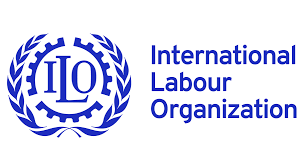The International Labour Organisation (ILO) says it seeks to strengthen its partners’ abilities to support re-integration of migrants and employment in Nigeria.
ILO’s National Coordinator, Employment and Re-Integration Programme, Mr Celestine Okereke, made this known at a two-day Communication and Visibility Meeting held on Thursday in Lagos.
Okereke said that the meeting was a wrap-up of one-year employment and re-integration programme of the ILO.
“At the ILO we do not do the last mine; what we do is bring partners from the government, and social partners including Trade Union Congress of Nigeria and Nigeria Labour Congress, then the workers’ unions and the local economy.
“The idea is to support our partners to do the work on our behalf; also, to have stakeholders synergise among themselves and support labour migration in Nigeria, which includes re-integration and employment creation for the local population.
“The focus is for both the local population, returnee and potential migrants toward the goal for migration development.
“It means we are supporting people to be able to migrate abroad, contribute to the economies of the countries they are going to, and still send remittance home that supports economic development in Nigeria, “ he said.
Okereke urged youths and anyone planning to migrate abroad to go through the Migrant Resource Centres (MRCs).
According to him, the MRCs are established by the government to offer advisory services on safe and regular migration.
He said: “The MRCs will give you the advice you need and support you need; in fact, they will even tell you the kind of skills you need to learn to be able to find jobs abroad.
“They can give you a whole lot of support that will enable you to migrate safely abroad. “
Also, the Programme Director, Patriotic Citizen Initiatives, a strategic partner of ILO, Mr Osita, Osemene, said that re-integration of migrants has to be holistic and encompassing.
Osemene said that it also required bringing on all stakeholders to ensure that there was a sustainable approach to it.
He identified lack of structure as one challenge facing the re-integration of migrants into the country.
“All agencies were working on their own, no professionalism; everybody is doing skill acquisition without a streamline, and no coordination.
“This meeting will give an appropriate coordination and also help the migrants to be well informed on how to get certified in terms of their re-integration.
“This meeting is a step in the direction because we are going to generate the next step forward that will also help us.
“We are going to come up with a strategy of the way forward to ensure that we have the right documentation and approach, “ Osemene said.




